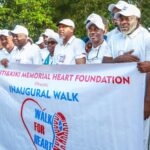By Hassan Zaggi
For Nigeria to achieve Open Defecation –Free (ODF) status, it must built over 9.4 toilet facilities across the country, the United Nation Children Fund (UNICEF), has said.
The UNICEF Water and Sanitation and Hygiene (WASH) Manager in Borno state, Mamita Bora Thakkar, who disclosed this at Media Dialogue to commemorate the 2021 World Toilet Day in Maiduguri, weekend, reiterated that for Nigeria to attend ODF status, over 4.7 million people must change their attitude and all the 37 states and the FCT declared Open defecation free.
The dialogue was organized by the Child Rights Information Bureau (CRIB) of the federal ministry of information and culture in collaboration with United Nations Children’s Fund (UNICEF).
She further insisted that for ODF status to be achieved, all stakeholders including communities, development partners, academic, states and local governments, private sector, religious leaders, traditional and opinion leaders must join hands together.
Reiterating the impact of poor WASH services, the UNICEF Manager, revealed that Nigeria losses about 1.3% (₦455 Billion) of her GDP annually to poor access to sanitation and that 102,000 under 5 child deaths occur each year due to diarrhea; and about 90% is directly attributed to unsafe water and sanitation.
According to her, 1 in 4 children under 5 exhibit severe stunting while 1 in 10 are wasted, due to frequent episodes of diarrhea and other WASH related illnesses and that frequent episodes of WASH related diseases cause absence from school or work, as affected people take time off to heal, and some to take care of a sick relative.
She also revealed that poor sanitation services reduce school enrolment and attendance due to time loss in search of water, also, frequent episodes of WASH-related illnesses and poor access to menstrual hygiene management facilities in schools and that open defecation results to loss of dignity, increasedrisks of insecurity and violence against women and children.
Earlier, the Officer-in-Charge UNICEF Chief of Maiduguri Field Office, Dr. Clement Adams, disclosed that evidence has shown that access to toilets and water benefits people and nations.
According to him: “It promotes the wellbeing of the workforce and contributes to the reduction of stunting in children.
“Ending open defecation helps to protect the dignity of women and girls and reduce the incidence of gender-based violence.”
He noted that: “Since 2018, UNICEF has supported state governments in the north-east with the construction and rehabilitation of 4,752 and 2,976 toilets respectively across IDP camps and communities.
“About 200 sites have been supported with hand pump boreholes while 126,690 non-food items have been distributed to displaced and vulnerable families.
“UNICEF has built capacities of state departments and LGAs to deliver safe and sustainable WASH services to communities and IDPs. UNICEF has also supported Adamawa, Borno and Yobe states to undertake rapid response to cholera outbreaks.”
The UNICEF Officer in Charge insisted that: “National and state budgets must reflect the importance of toilets and water sources to the health of children and workforce.
“We must prioritise investments in physical and human resources and scale up existing programmes targeting expansion of toilet and water services.
“We must put our money where our mouth is. It is more cost-effective to construct more toilets for conflict-affected people than to treat endless flares of cholera outbreaks with unnecessary mortalities. inability to access toilets is costly. It robs children of their health. When people die of cholera complications, children are sadly stripped of parental care and the most basic protection.”
UNICEF, he maintained, will continue to work with state governments and RUWASSA in the north-east to promote the wellbeing of conflict-affected people and safeguard the rights of conflict-affected children to life and good health.
“Across the north-east, UNICEF will continue to advocate for one more toilet and borehole until every IDP camp, home, school and market have adequate sanitation and hygiene and facilities that safeguard the wellbeing of all,” he said.



